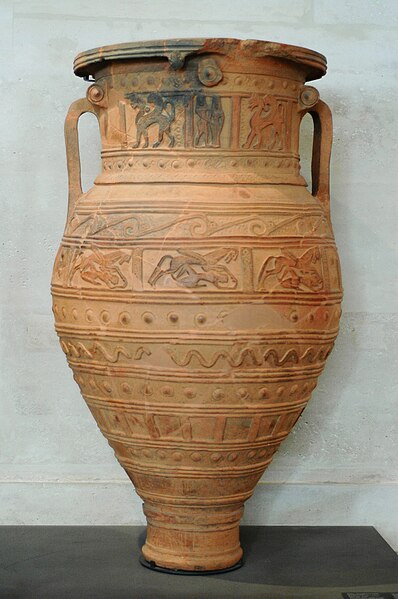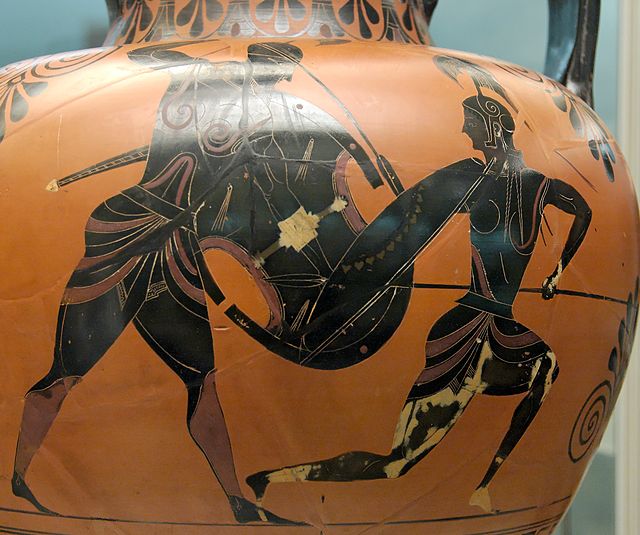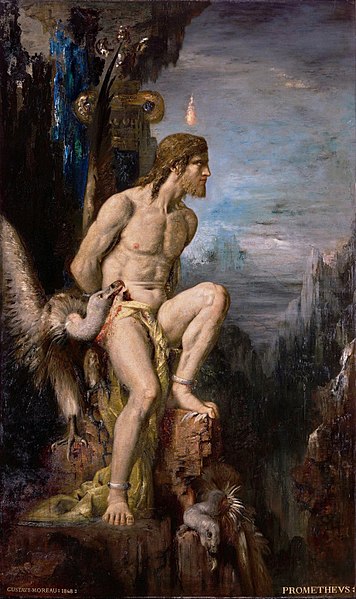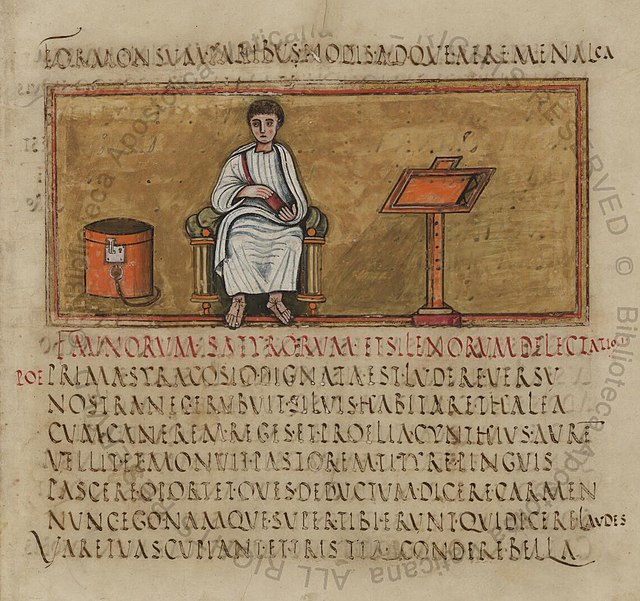In Greek mythology, Pandora was the first human woman created by Hephaestus on the instructions of Zeus. As Hesiod related it, each god cooperated by giving her unique gifts. Her other name—inscribed against her figure on a white-ground kylix in the British Museum—is Anesidora, "she who sends up gifts".
Pandora by John William Waterhouse, 1896
Pandora holding a pithos, with Hermes, and a seated Prometheus, Prometheus, Mercury, and Pandora, 1814, by Josef Abel
A pithos from Crete, c. 675 BC (Louvre Museum)
Hermes carrying Pandora down from Mount Olympus, a medal based on a design by John Flaxman
Greek mythology is the body of myths originally told by the ancient Greeks, and a genre of ancient Greek folklore, today absorbed alongside Roman mythology into the broader designation of classical mythology. These stories concern the ancient Greek religion's view of the origin and nature of the world; the lives and activities of deities, heroes, and mythological creatures; and the origins and significance of the ancient Greeks' cult and ritual practices. Modern scholars study the myths to shed light on the religious and political institutions of ancient Greece, and to better understand the nature of myth-making itself.
Achilles and Penthesileia by Exekias, c. 540 BC, British Museum, London
Prometheus (1868 by Gustave Moreau). The myth of Prometheus first was attested by Hesiod and then constituted the basis for a tragic trilogy of plays, possibly by Aeschylus, consisting of Prometheus Bound, Prometheus Unbound, and Prometheus Pyrphoros.
The Roman poet Virgil, here depicted in the fifth-century manuscript, the Vergilius Romanus, preserved details of Greek mythology in many of his writings.
Phaedra with an attendant, probably her nurse, a fresco from Pompeii, c. 60 – c. 20 BC








